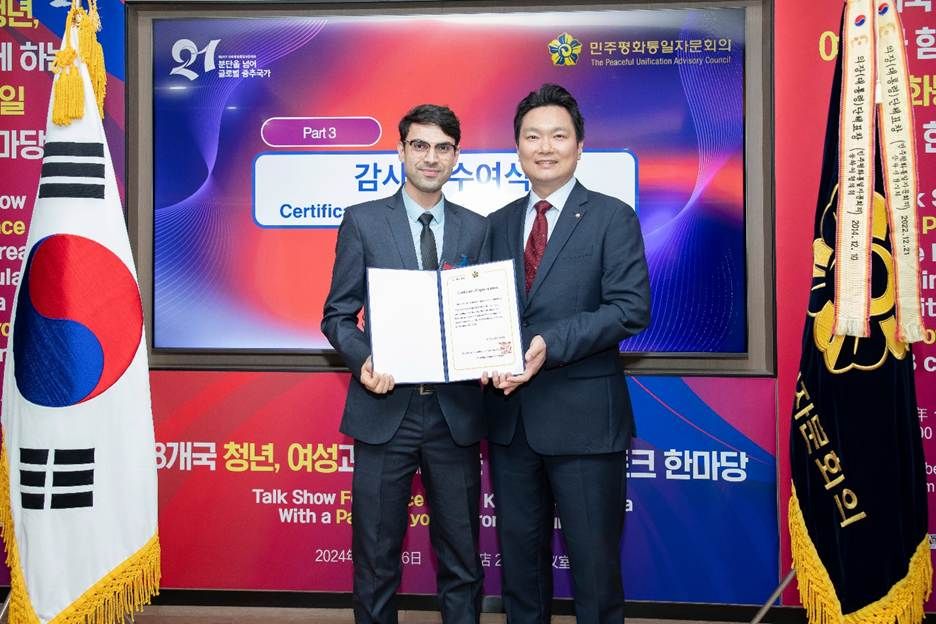The Peaceful Unification Advisory Council (PUAC) Shanghai Municipal Chapter hosted its 2nd Talk Show for Peace on the Korean Peninsula at Jixiang Hotel in Shanghai, November 16, 2024, gathering youth representatives from eight countries, including four SJTU students, to discuss peace and unification. The SJTU representatives—Mohammad Shahir Sharifi from Afghanistan, Mahmoud Sultan from Egypt, Monica Wu from Argentina, and Olga Elagina from Russia—shared insights from their diverse cultural and academic backgrounds, forming a rich tapestry of perspectives on building peace.
Sharifi began by recalling a symbolic moment at the Paris Olympics, where athletes from China, North Korea, and South Korea took a selfie together, framing it as a testament to humanity’s collective longing for unity. He emphasized the role of trust-building in facilitating unification, citing the Persian poem Bani Adam by Saadi—inscribed at the United Nations headquarters in New York—to underscore the interconnectedness of human beings and the shared pursuit of peace and unification. Sultan supported this by highlighting the importance of transparency and grassroots dialogue, urging that youth on both sides of the border must actively engage in discussions to understand what unification would mean for their daily lives. Wu echoed this sentiment, adding that cultural exchange programs showcasing traditions like music and art could foster mutual respect and lay the groundwork for deeper connections.
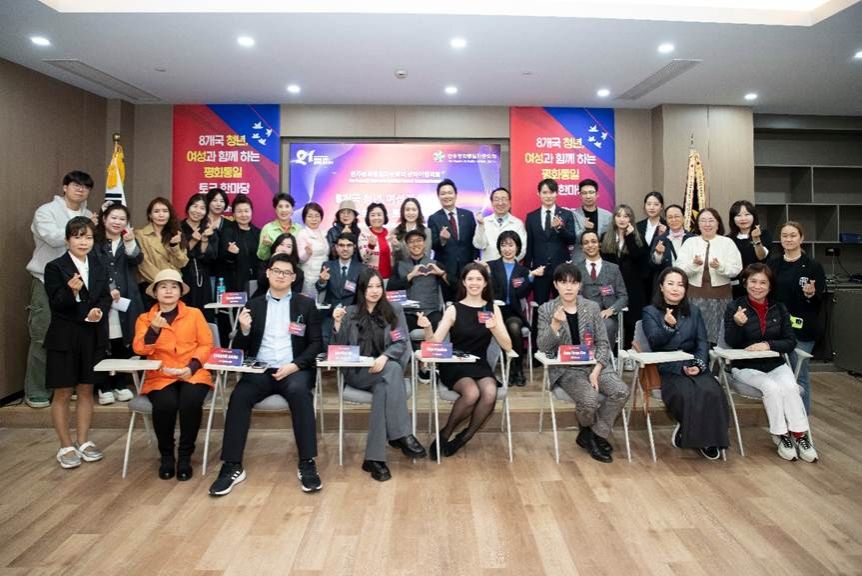
The discussion also touched on the importance of independence in negotiations, with Elagina arguing that the two Koreas should navigate their path to unification free from external influence. Sultan, reflecting on Egypt’s history, reinforced this view, noting that real change comes from within and that cross-cultural exchanges can enhance mutual understanding. Sharifi, drawing on Chinese cultural values, pointed to the saying “人心齐泰山移” (When people’s hearts are united, they can even move Mount Tai) to emphasize collective action. He aligned this with China’s political vision of “人类命运共同体” (A community with a shared future for mankind), demonstrating how shared goals can foster cooperation across borders.
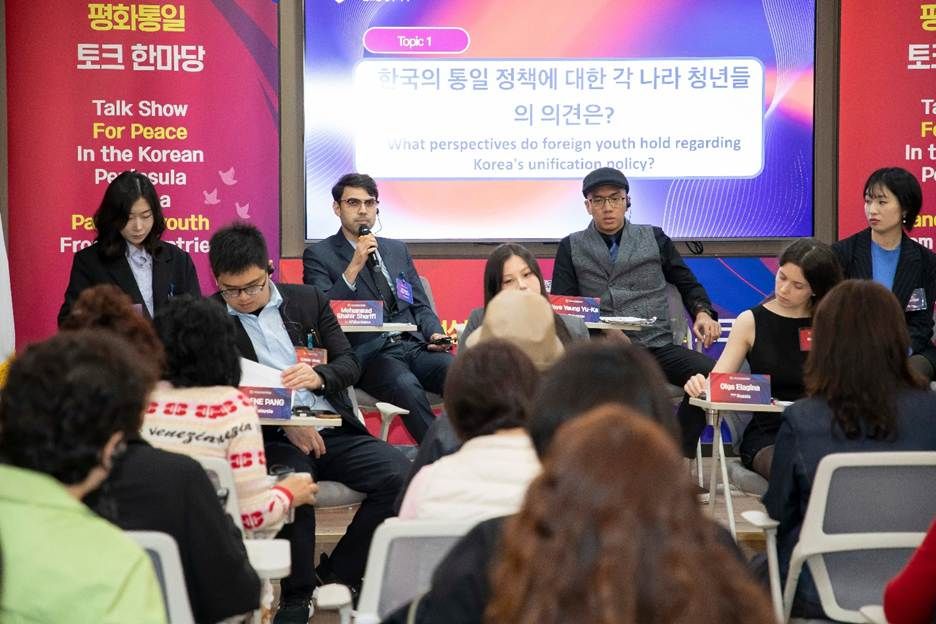
Wu further elaborated on the role of youth, advocating for active listening and the promotion of nonviolent communication to inspire unity. Sultan expanded on this by suggesting collaborative projects focused on environmental sustainability and technology, which could unite young people through shared goals. Sharifi concluded by calling for spiritual growth and political consciousness among youth, emphasizing that only individuals with a strong moral foundation and awareness of divisive policies can bring meaningful change.
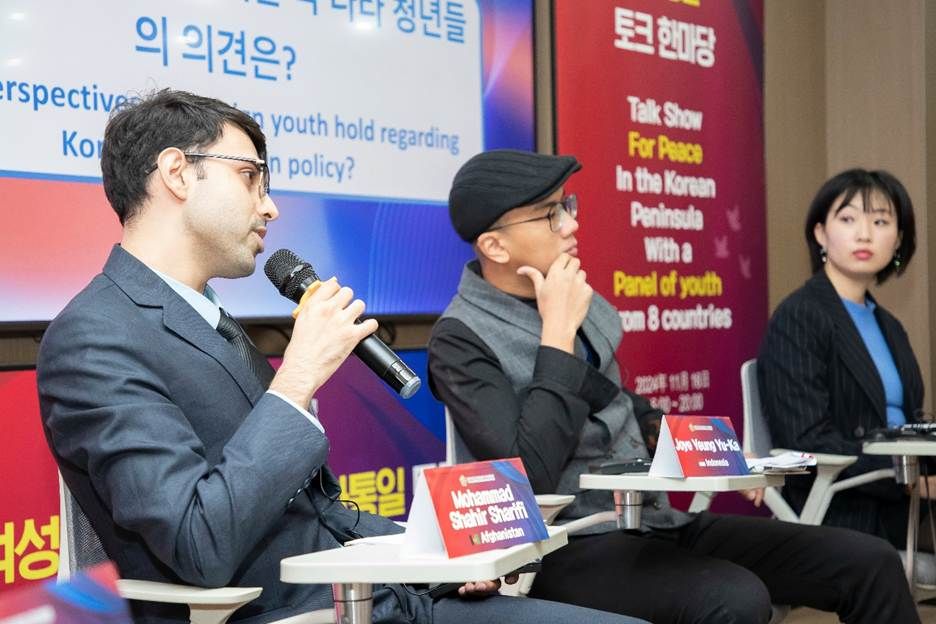
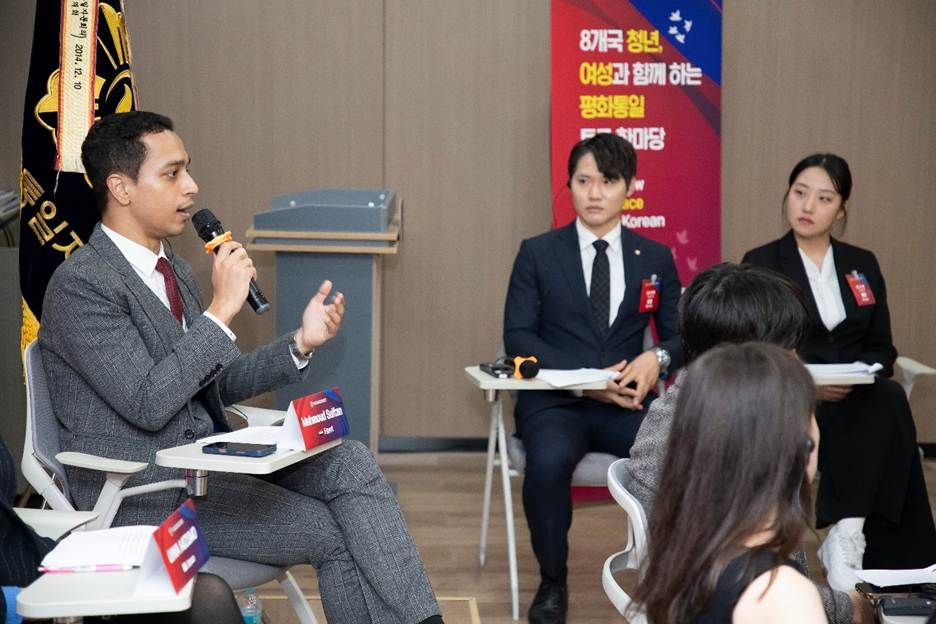
The panel’s discussion showcased a cohesive and hopeful vision for peace on the Korean Peninsula, rooted in trust, cultural exchange, and independent decision-making. By leveraging these values, the next generation holds the potential to transform divisions into opportunities for unity and cooperation.
